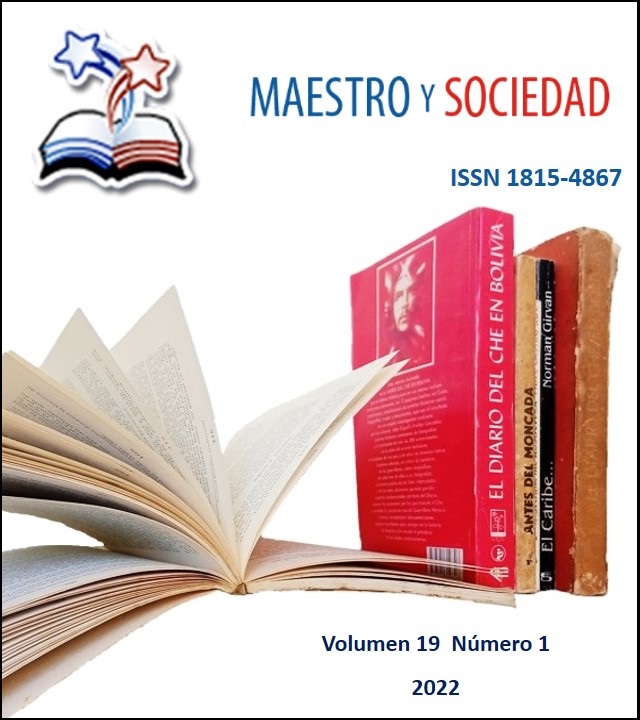Model of the transformative projective dynamics of postgraduate training in intellectual property for t university professors
Array
Keywords:
Transformative projective dynamics postgraduate training, intellectual propertyAbstract
This article exposes the theoretical foundations of the model of the transformative projective dynamics of postgraduate training in intellectual property for university professors from the perspective of the Holistic-Configurational Approach, which is an expression of the essential relationships that are established between its configurations, from which originate the movements that give rise to new qualities for the transformation of the modeled object. It is established as theoretical methods: -analysis and synthesis for the determination of the categories of the pedagogical model of the research and in particular of the transforming projective dynamics of postgraduate training in intellectual property for university professors; as well as the data obtained with the application of different techniques for the collection of information related to the subject, and the -hermeneutical-dialectical revealed through the processes of understanding, explanation and interpretation of the transformative projective dynamics of postgraduate training in property intellectual for university professors.
References
2. Baylos, C. (2009). Tratado de Propiedad Industrial. Universidad Complutense de Madrid, Civitas-Thomsom Reuters.
3. Castro A., P., Chacón, A. y Mendoza, L. (2013). La escuela y la formación de valores. Enfoques y experiencias. [Cd-Room].
4. Delgado, J. (2008). La formación en valores: una reconceptualización imprescindible en la educación de posgrado. Revista Iberoamericana de Educación, 42(5). http://www.rieoei.org/2377.htm
5. Fuentes, H. (2009). Pedagogía y Didáctica de la Educación Superior. Universidad de Oriente.
6. Fuentes, H., Montoya, J. y Fuentes, L. (2011). La formación en la educación superior: desde lo holístico, complejo y dialectico de la construcción del conocimiento científico. Ediciones UO.
7. López, Z. (2014). La superación profesional en el contexto de la entidad laboral como componente indispensable de la formación permanente de los profesores de la ETP. http://www.revista.orbitacientífica.rimed.cu/
8. Masó, Y. (2017). Problemáticas asociadas a la gestión de la propiedad intelectual en la carrera de ingeniero agroindustrial de la Facultad de Ingenieria de la Universidad Autónoma de San Luis de Potosí. [Cd-Rom]. Congreso Nacional de Investigación educativa-COMIE.
9. Tarragó A., R. M., Rodríguez S., M J., Montenegro M., E. I. y Asín C., M. (2019). Formación posgraduada de los profesores universitarios en propiedad intelectual, actualidad y transformación. Revista Maestro y Sociedad, 16(4), 744-752. http://maestroysociedad.uo.edu.cu
10. Vigotsky, L. S. (1987). Historia del desarrollo de las funciones psíquicas superiores. Editorial Científico Técnica.
Published
How to Cite
Issue
Section
License
This journal provides immediate open access to its content, based on the principle that offering the public free access to research helps a greater global exchange of knowledge. Each author is responsible for the content of each of their articles.



























 Universidad de Oriente
Universidad de Oriente 